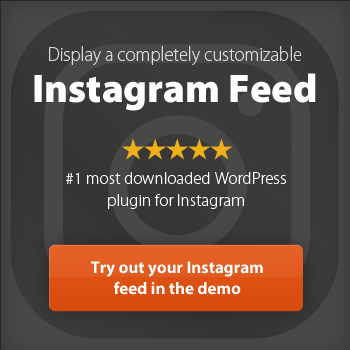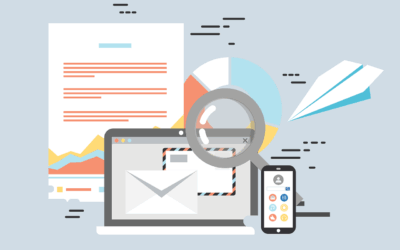Are you looking for the best CRM software for small business owners?
Customer relationships are the backbone of any successful small business. But managing interactions, tracking leads, and coordinating across teams can become overwhelming as your business grows. That’s where CRM platforms come in, offering diverse functionalities to manage customer relationships, automate processes, and improve organizational efficiency.
If you’re tired of juggling spreadsheets or losing track of follow-ups, it might be time to consider implementing a CRM system. This guide will walk you through everything you need to know about CRMs, their features, benefits, and how to select the best one for your small business.
What Is a CRM?
A CRM, or Customer Relationship Management, is technology designed to manage your interactions with customers and prospects. It helps businesses streamline processes, improve customer experiences, and boost profitability.
Think of it as a central hub where your sales, marketing, and customer support teams work together to manage leads, track communication, and optimize operations.
Definition of CRM
A Customer Relationship Management (CRM) system is a technology solution that enables businesses to manage and analyze customer interactions and data throughout the customer lifecycle. CRM systems provide a centralized platform for sales, marketing, and customer service teams to access and share customer information, track interactions, and analyze customer behavior. The primary goal of a CRM system is to improve customer relationships, streamline sales processes, and increase revenue.
Looking for an experienced Wordpress Development company?
A Brief History of CRM
The concept of CRM has come a long way. Back in the 1950s, sales reps used Rolodexes to organize customer contact information. Fast forward to the 1990s, and early CRM systems emerged, combining database marketing and contact management. Over time, CRMs evolved to include advanced features such as analytics, marketing automation, and customer service tools, making them indispensable for modern businesses.

Why Small Businesses Need CRM Software
A CRM is more than just a glorified address book—it’s a tool that transforms how you manage customer relationships and align internal processes. Here’s a closer look at how a CRM can benefit your small business:
1. Streamlined Sales Processes
Productivity CRM software simplifies your sales pipeline by automating routine tasks like data entry, scheduling follow-ups, and generating reports. This means your sales team spends less time on admin and more time closing deals.
2. Enhanced Customer Relationships
By tracking customer interactions and preferences, CRMs enable personalized communication. This attention to detail boosts customer satisfaction, retention, and long-term loyalty.
3. Amplified Marketing Efforts
With CRM tools, you can segment your audience, run more targeted marketing campaigns, and measure results effectively. This data-driven strategy helps you focus on high-value customers.
4. Improved Data Management
Gone are the days of messy spreadsheets. CRMs centralize all customer data in one place, making it accessible to the entire team. This improves communication and ensures everyone is on the same page.
5. Scalability for Growing Businesses
Whether you’re a solo entrepreneur or managing a growing team, scalability CRM systems scale alongside your business. It adapts as your processes, customers, and goals evolve.
6. Mobile Access for On-the-Go Teams
Many CRMs provide mobile apps, enabling you to access customer data, track deals, and manage tasks anytime, anywhere.

Signs Your Small Business Needs a CRM
Still wondering if you need a CRM? Here are some signs it’s time to make the switch:
- You’re losing track of customer interactions across multiple channels. Whether it’s email, social media, or phone calls, CRM systems consolidate communication in one place.
- Your sales cycle is long or complex, making it hard to track progress across leads and deals.
- You’re struggling to manage customer data. If your team relies on spreadsheets or sticky notes, a CRM can organize and centralize information for better decision-making.
- You want better insights into sales and marketing performance to optimize strategies and grow your business.
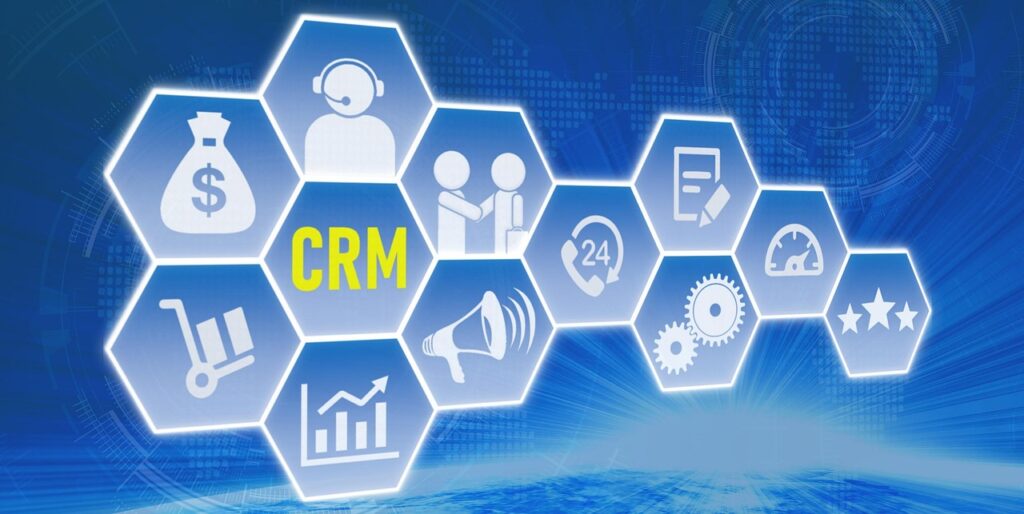
Key Features to Look for in a CRM
When choosing the best CRM for your small business, it’s essential to look for features that align with your needs. Here are the must-have tools:
1. Contact Management
Track and store customer contact information in a centralized, easily accessible database. Make sure the CRM updates in real-time, especially when integrated with other tools.
2. Email Marketing and Tracking
Choose a CRM that offers customizable email templates, open rate tracking, and audience segmentation to make email campaigns seamless and effective.
3. Automation
A good CRM automates time-consuming tasks like scheduling, follow-ups, and even workflows. This increases productivity and frees up your team for strategic activities.
4. Social Media Management
With most small businesses relying on social media for promotion, integrating social media tools into your CRM is a game-changer for maintaining consistent communication with customers.
5. Flexibility
Flexibility is a crucial feature to look for in a CRM system, especially for small businesses. A flexible CRM system should be able to adapt to the changing needs of your business, allowing you to easily add or remove features, users, and integrations as needed. This flexibility ensures that your CRM system can grow with your business, providing a scalable solution that meets your evolving needs.
5. Pipeline Management
Visualize the sales pipeline management to guide your team through leads and deals. The best CRMs also offer custom reports to forecast and analyze sales performance.
6. Customer Support Tools
Live chat, ticketing, or a help desk solution can ensure your small business provides excellent support, even with a lean team.

The Importance of Centralized Customer Data
Centralized customer data is a critical component of a CRM system. By storing all customer information in a single, accessible location, businesses can ensure that all teams have a unified view of the customer. This centralized data enables businesses to provide personalized customer experiences, streamline sales processes, and make data-driven decisions. A CRM system with centralized customer data also helps to reduce data silos, improve data accuracy, and enhance collaboration across teams.

Best CRM Software for Small Business Owners
With hundreds of CRM solutions on the market, it’s vital to choose the one that best meets your business needs. Here are some top-rated CRMs for small businesses:
1. Salesforce CRM
A powerhouse with advanced features to manage sales, customer service, and analytics. While robust, it’s often best suited for businesses with larger budgets.
2. HubSpot CRM
Ideal for startups and small businesses due to its free version and user-friendly interface. Its marketing automation tools make it a favorite among growing teams.
3. Zoho CRM
Zoho CRM: Highly scalable with a broad suite of features at competitive pricing. It’s perfect for small businesses ready to scale quickly.
4. Pipedrive
A sales-focused CRM that excels in pipeline management and tracking deals. Its visuals are intuitive and ideal for beginner-level users looking to streamline their sales process.
5. Freshsales
Powered by AI, this CRM provides chat and email features, helping sales teams foster better communication and improve lead nurturing.

CRM Pricing and Plans
CRM pricing and plans vary widely depending on the vendor, features, and number of users. When evaluating CRM pricing, it’s essential to consider the total cost of ownership, including any additional fees for features, integrations, or support. CRM pricing models typically fall into one of the following categories:
Overview of CRM Pricing Models
- Per-User Pricing: This model charges a fixed fee per user, often with discounts for larger teams or enterprises.
- Tiered Pricing: This model offers different pricing tiers based on the number of features, users, or storage capacity.
- Flat-Fee Pricing: This model charges a single, flat fee for access to the CRM system, often with unlimited users or features.
- Freemium Pricing: This model offers a free version of the CRM system with limited features, with the option to upgrade to a paid plan for additional features or support.
- Custom Pricing: This model provides a tailored pricing plan based on the specific needs and requirements of the business.
When evaluating CRM pricing, it’s essential to consider the specific needs of your business, including the number of users, features, and integrations required. By choosing a CRM system with a flexible pricing model, businesses can ensure that they are getting the best value for their investment.
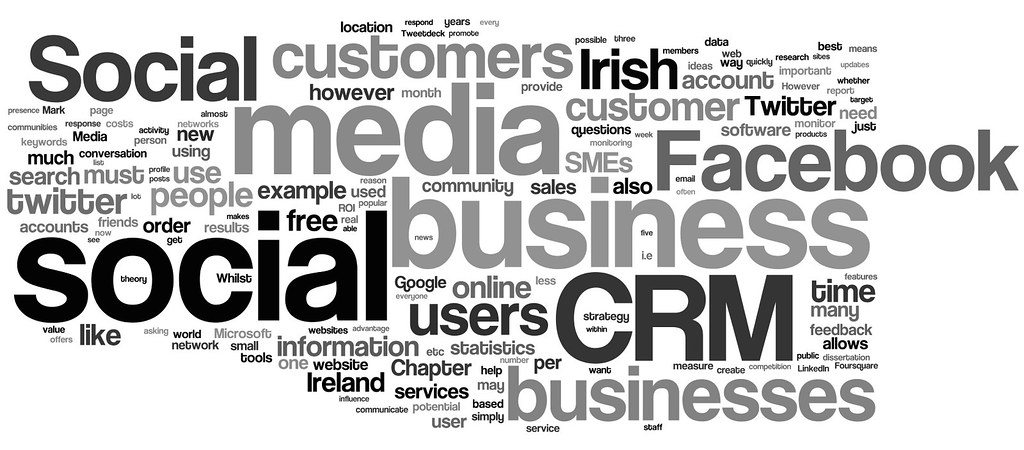
How to Choose the Right CRM for Your Business
Selecting the right CRM comes down to assessing your specific needs and budget. Follow these steps to find the perfect fit:
- Identify your key requirements. Do you need more automation? Social media integration? Lead tracking tools?
- Evaluate scalability. Choose a CRM that can grow with your business.
- Research pricing plans. Review free versions and paid tiers to ensure affordability.
- Test usability. Most CRMs offer free trials—use them to familiarize yourself with the interface.
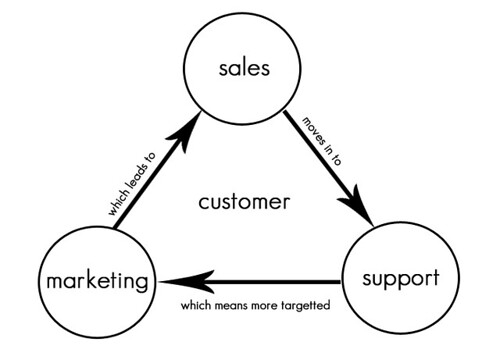
What to Expect After Implementing a CRM
Integrating CRM software into your business processes won’t just improve efficiency—it will foster growth. Here’s what you’ll gain:
- Streamlined Sales and Marketing Efforts: Automate workflows, manage campaigns, and optimize strategies.
- Enhanced Team Collaboration: Centralized data ensures all team members are aligned and working toward shared goals.
- Better Customer Retention: Timely communication and personalized service build long-term relationships.

Elevate Your Business with the Right CRM
Choosing the right CRM is a critical step in managing your customers, optimizing your processes, and preparing for growth. Whether you’re looking for advanced features like AI or robust yet affordable tools, there’s a solution for every small business.
If you’d like expert assistance in setting up the perfect CRM and leveling up your business processes, contact Priceless Consulting today. From CRM implementation to SEO services, we’ll help you streamline your operations and boost your online presence.



